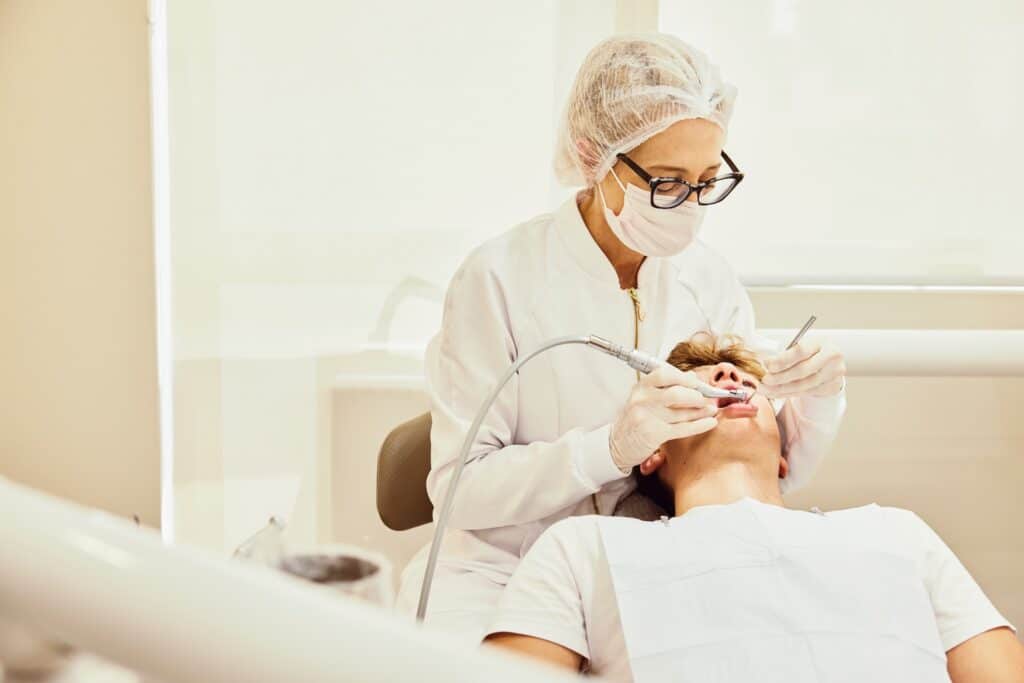Wisdom teeth, also known as third molars, are the last set of teeth to erupt in the mouth. For some people, these teeth can cause problems, such as pain, infection, and damage to adjacent teeth. In such cases, dentists may recommend wisdom teeth removal.
However, like any surgery, wisdom teeth removal comes with potential risks and complications. To make an informed decision, it is important to understand these risks and what you can do to minimize them.
Risk Factors for Complications
Several factors can increase the risk of complications from wisdom teeth removal. These include:
1. Age
Older adults may have more difficulty healing after surgery, and their risk of complications, such as dry sockets, may be higher.
2. Smoking
Smoking can delay healing and increase the risk of infection after surgery.
3. Medical Conditions
People with certain medical conditions, such as diabetes, autoimmune disorders, and bleeding disorders, may be at higher risk of complications.
4. Medications
Some medications, such as blood thinners, may increase the risk of bleeding during surgery.
5. Impacted Teeth
Teeth that are impacted, or partially or fully covered by gum tissue, may be more difficult to remove and may increase the risk of complications.
Types of Complications
Complications from wisdom teeth removal can be divided into two categories: immediate and delayed.
Immediate complications may occur during or shortly after the surgery. These include:
1. Bleeding
Bleeding is common after wisdom teeth removal, but excessive bleeding can be a sign of a problem.
2. Infection
Infection can occur if bacteria enter the surgical site. Symptoms may include pain, swelling, fever, and a bad taste in the mouth.
3. Nerve Damage
The nerves that supply sensation to the tongue, lips, and cheeks can be damaged during surgery, leading to numbness, tingling, or loss of sensation in these areas.
4. Anesthesia Complications
Anesthesia can cause side effects such as nausea, vomiting, dizziness, and difficulty breathing.
Delayed complications may occur days or weeks after the surgery. These include:
1. Dry Socket
Dry socket occurs when the blood clot that forms in the surgical site is dislodged or dissolves, exposing the underlying bone and nerves. This can cause intense pain and delay healing.
2. Sinus Problems
If the upper wisdom teeth are close to the sinuses, the sinuses may be affected during surgery, leading to sinus pain, congestion, or infection.
3. Jaw Stiffness
Stiffness and limited movement of the jaw may occur after surgery, especially if the mouth was held open for an extended period of time.
4. Paresthesia
Paresthesia is a persistent numbness or tingling sensation in the tongue, lips, or cheeks, usually caused by nerve damage during surgery.
Minimizing the Risks
While complications can occur after wisdom teeth removal, there are steps you can take to minimize the risks. These include:
1. Choosing an Experienced Oral Surgeon
An experienced surgeon is more likely to minimize the risk of complications and handle any problems that may arise.
2. Following Pre- And Post-operative Instructions
Your surgeon will provide instructions on how to prepare for surgery and how to care for your mouth afterward. Following these instructions can help reduce the risk of complications.
3. Avoiding Smoking
If you smoke, quitting before surgery and avoiding smoking afterward can help reduce the risk of infection and delay healing.
3. Informing Your Surgeon of Medical Conditions and Medications
Your surgeon needs to know about any medical conditions you have and any medications you are taking, including over-the-counter drugs and supplements. Some medications may need to be stopped before surgery to reduce the risk of bleeding.
4. Resting and Taking It Easy
Resting and avoiding strenuous activities can help reduce the risk of bleeding and other complications.
5. Eating a Soft Diet and Avoiding Straws
Eating soft foods and avoiding straws can help prevent dislodging the blood clot and delay healing.
Conclusion
Wisdom teeth removal is a common procedure, but it is not without risks. Understanding the potential complications and how to minimize them can help you make an informed decision about whether to have your wisdom teeth removed.
If you are considering wisdom teeth removal, talk to your dentist or oral surgeon about your individual risks and what you can do to minimize them.
Looking for reliable and professional dental extraction in Pickering? Look no further than Pickering Dental Services! Our team of experienced professionals utilizes the latest technology and techniques to ensure a safe and comfortable dental extraction experience. Contact us today to schedule your appointment!



